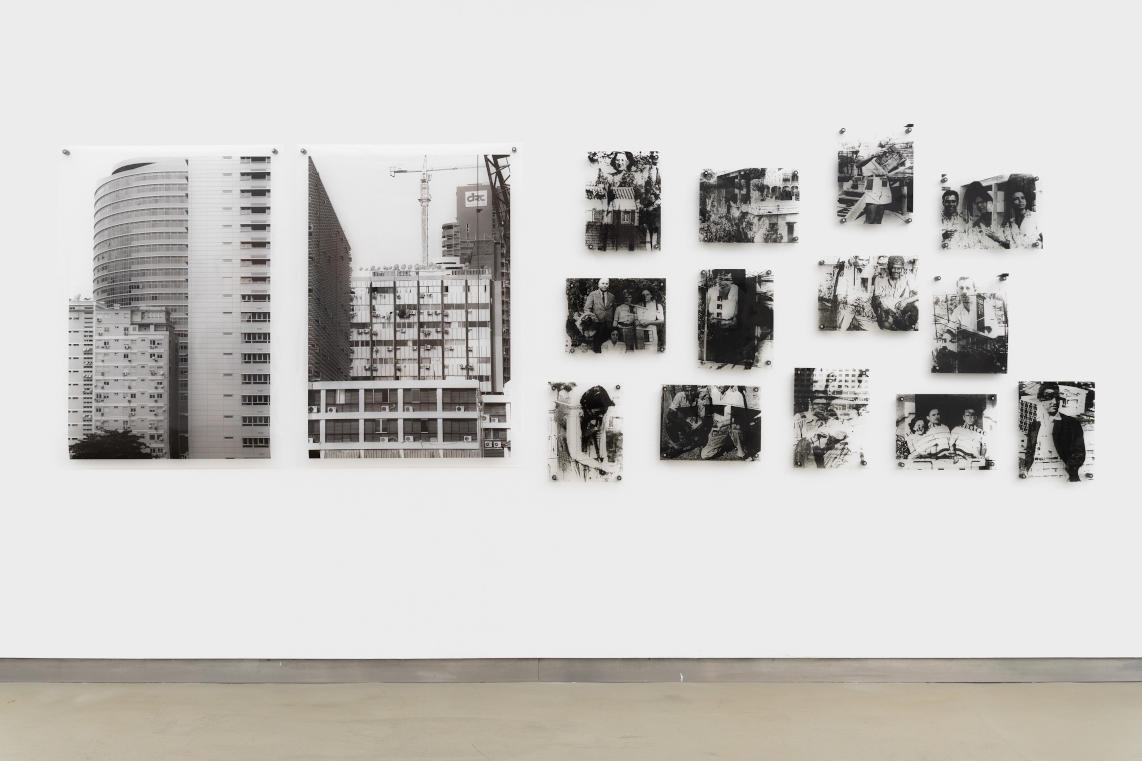Whoever holds an archive holds power, for the keeper of an archive can steer both his own historical narrative and that of all who, directly or indirectly, have passed through it. The archive thus exercises a sovereignty that is often insidious, able to keep a past shackled within the meshes of former empires and bygone stories whose present and future remain unresolved.
This truth becomes still clearer when we realise that much of the archival material of former colonies is housed in the old imperial metropolises. In other words, if ex‑colonies wish to be masters of their own past, they must perforce submit to the scrutiny of the museums and archival institutions of the erstwhile centres of power. All the information and research devoted to those holdings, all the ink spilled about them, stays there – here – far from their points of origin, inaccessible to many of their subjects, and only their theoretical deconstruction and reproduction may one day be returned home – for Françoise Vergés’s post‑museum condition has yet to arrive, and the universal museum appears impervious to every plea for restitution or repatriation.
For the moment, the decolonisation of archives is being pursued largely by artists – agents who, by nature, can unearth, transform and re‑imagine the matter of which History, identities and time are made, probing legal minutiae and dissecting national policies, even if this demands a perilous yet necessary subversive manoeuvre. Another path is to make the copy and the reproduction into an original, thereby upending rigid hierarchical notions of archival and artistic value.
This, in part, is the guiding premise of Délio Jasse’s work: through copying and translating archival images and texts, he inverts—and thereby complicates—that material. “Possession” – a term that swiftly awakens nationalist or identitarian sentiment – matters as much as its dissolution through modern reproductive techniques. For the gargantuan, governmental aura of archives is now overlaid by another, attuned to the hyper‑mediated virulence of the image: difficult to contain, impossible to halt, endowed with the boundless plasticity of mass communication. The construction of the imagistic context – the metadata, in contemporary parlance – is now in the hands of whoever appropriates it. Museums and archives – long hailed as factories of civilisation and modernity – find themselves confronted with the limits of their own creation, compelled to reckon with a cultural edifice riddled by a colonial, capitalist and patriarchal complex. It is no longer enough to end political dominion; what is required is decolonisation: the analysis and dismantling of mechanisms and structures that persist in gestures, languages and generations far beyond formal independence.
Jardim do Império [Imperial Garden], presently on view at Galeria Filomena Soares, is the green inferno of the former empires. What appears to be the idyll of a certain regime, one that aestheticised the exotic and co‑opted it to forge a narrative that gently masks the violence of colonialism, manipulating feelings of belonging as well as of grandeur, is here returned as a systemic jolt. Its constituents awaken, suddenly, to a corrupted structure that they themselves, through acts and omissions, helped build or perpetuate. By invoking the memory of Hieronymus Bosch’s Garden of Earthly Delights, where pleasure was clad in childlike innocence, small white creatures given over to sensual delight before being consigned to the inferno of that sensory animality, Jasse brings into the present the imagery of guilt, sin and human idiosyncrasy within a colonial, post‑colonial and decolonial frame. What for so long was a playground for the hunt, for sun‑bathing, for extraction and exploitation of resources, is now a space fashioned from the shadows and remnants of that era.
The power of the treated archival image, through cyanotype, printing, photographic development or screen‑printing, seems, in this garden, to become viral. One can readily imagine these reproductions on posters, placards, magazines, in demonstrations, fully in keeping with an economy of installation resources. The use of the image and of mechanisms of display and reproduction is fundamentally activist, wiping the slate clean of the “original” and the notion of value attached to it. Jasse’s oeuvre can therefore only be contemporary: it makes of historical contingency, and its tropes and constructive devices, a form that is at once artistic and political. The archival inquiry is both preceded and followed by an ontology of the image and its dissemination — above all the photograph and its deployment in shaping identities, power relations, and the economies of tourism and elites. The photographic gaze is the white gaze upon the Black body. That body is objectified by the predatory camera lens, then printed and circulated without consent, so as to construct an idea of racial superiority propagated in manuals and private archives of a quasi‑ethnographic or anthropological bent.
The text accompanying Jardim do Império, written by Ana Balona de Oliveira, is a brief yet indispensable essay on Délio Jasse’s artistic and investigative practice, deconstructing the colonial and Western modus operandi through his work. It ends with a striking paradox: a colonising country now colonised by Northern Europe, which sees in Portugal a splendid investment for those chasing the setting sun.
Jardim do Império by Délio Jasse, is on view at Galeria Filomena Soares until May 15.
